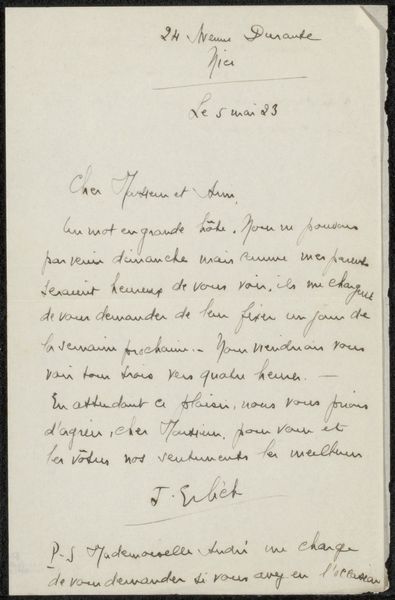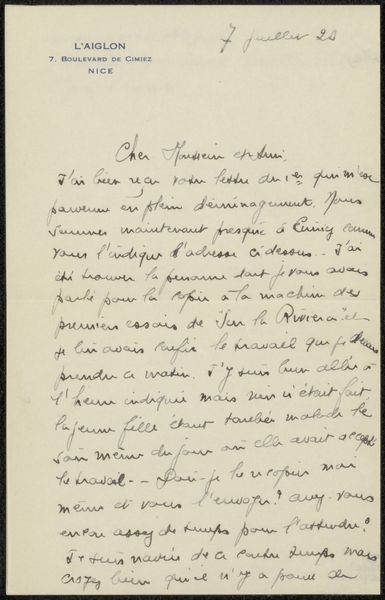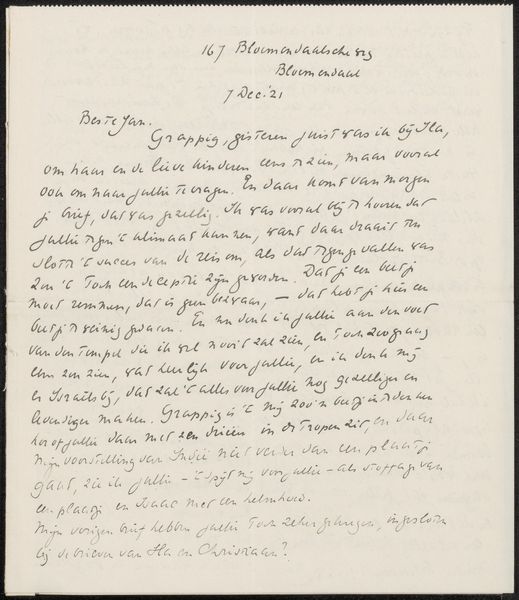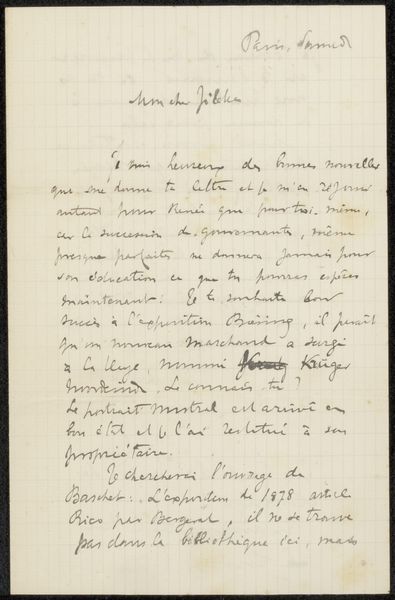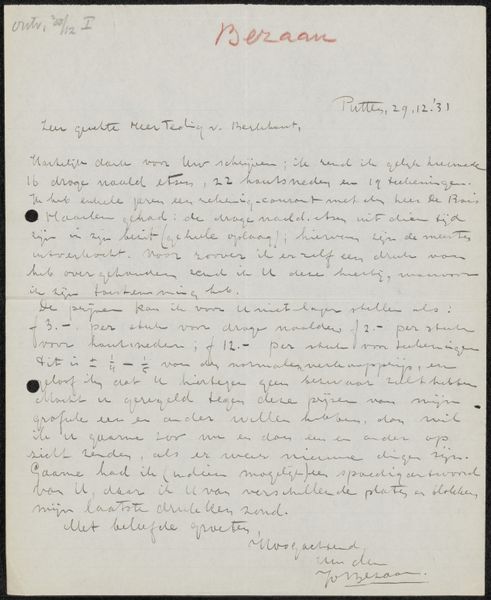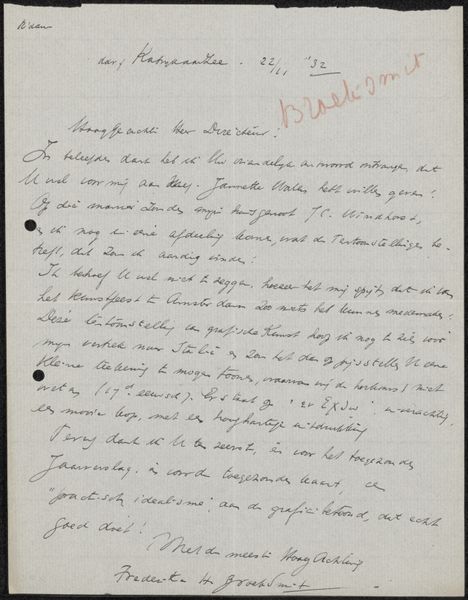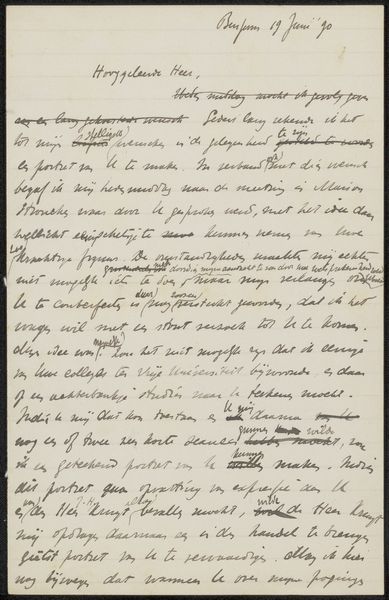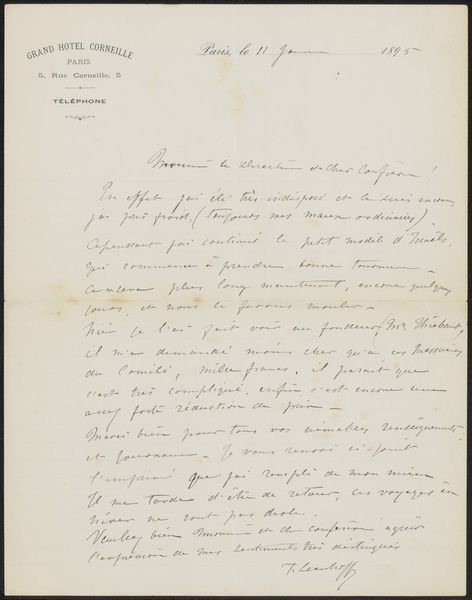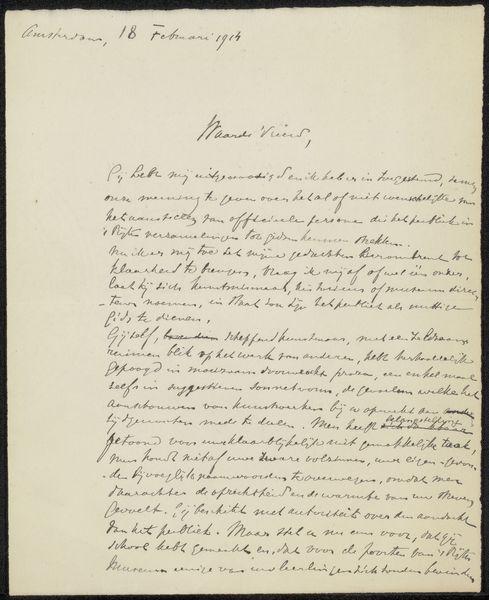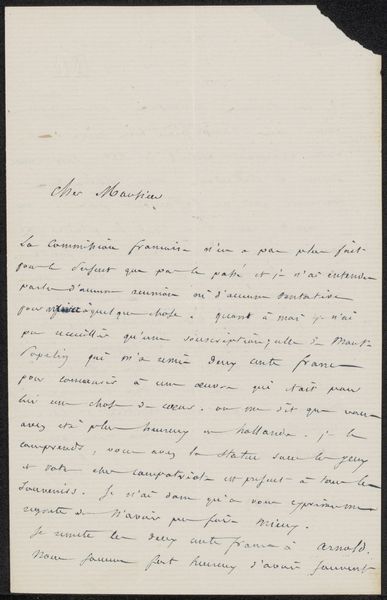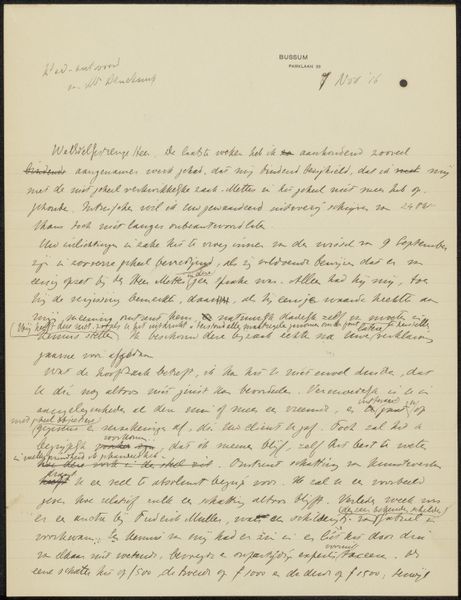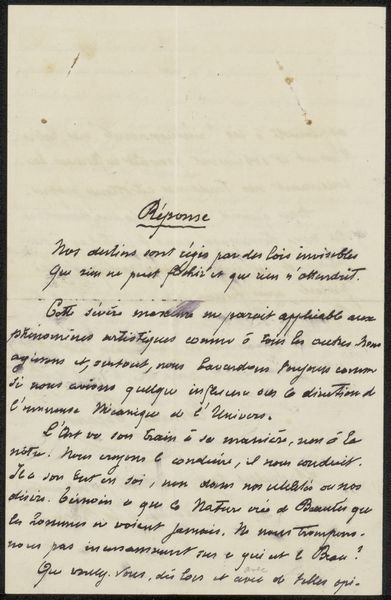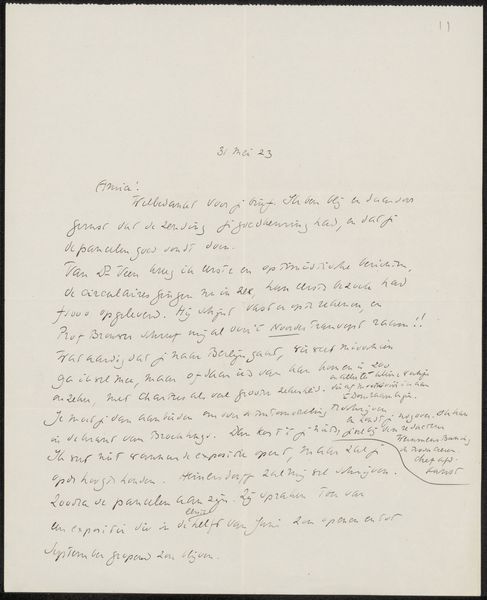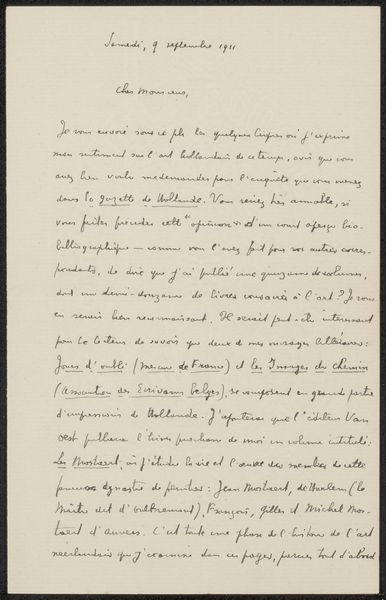
drawing, paper, ink, pen
#
drawing
#
comic strip sketch
#
french
#
hand drawn type
#
paper
#
personal sketchbook
#
ink
#
hand-drawn typeface
#
ink drawing experimentation
#
pen-ink sketch
#
pen work
#
sketchbook drawing
#
pen
#
storyboard and sketchbook work
#
sketchbook art
Copyright: Rijks Museum: Open Domain
This is a letter written by Stéphane Mallarmé in Paris, February 1897. He composed it with pen and ink on paper, materials so simple they’re almost invisible. Yet, consider how the very act of handwriting shapes both its meaning and value. The letter is addressed to an anonymous recipient regarding the publication of letters he addressed to Verlaine. Mallarmé expresses that he would never have considered putting into print anything that hadn't been through the press, suggesting that mass production somehow authenticates the missives. The act of transcription creates a sense of intimacy and, through penmanship, Mallarmé exerts direct control over his words. Ultimately, the letter raises questions about value and authenticity in an age increasingly dominated by mechanical reproduction. Is Mallarmé suggesting handwritten letters are somehow elevated above those subject to "l'industrie?" Or is there, for him, a relationship between art and manufacture?
Comments
No comments
Be the first to comment and join the conversation on the ultimate creative platform.
